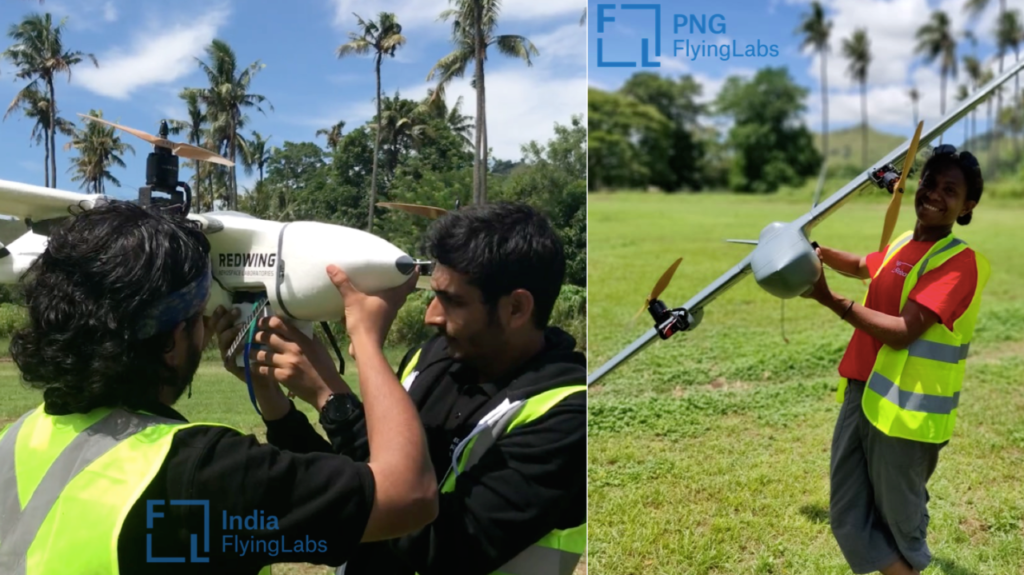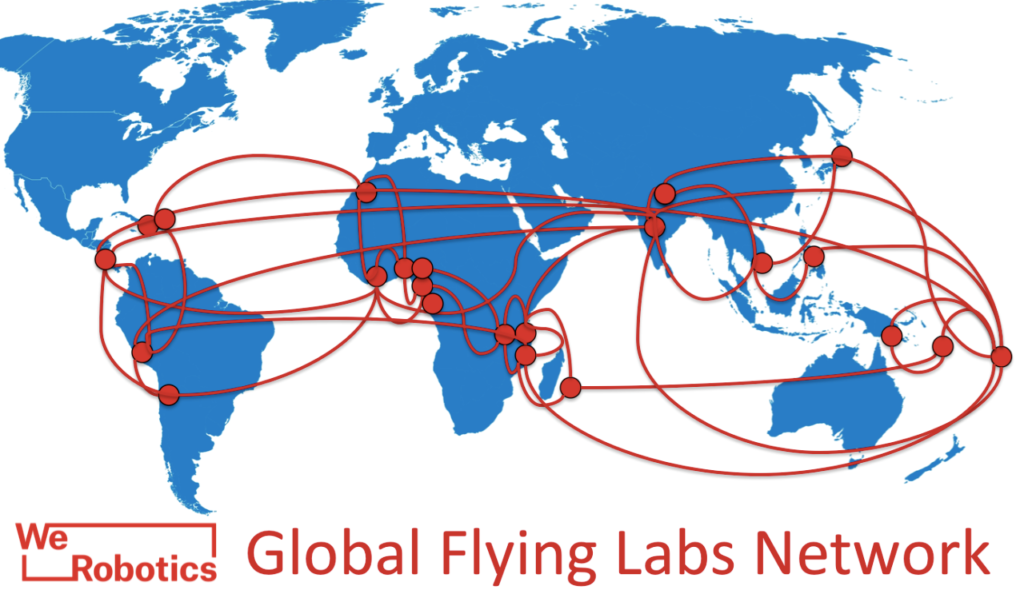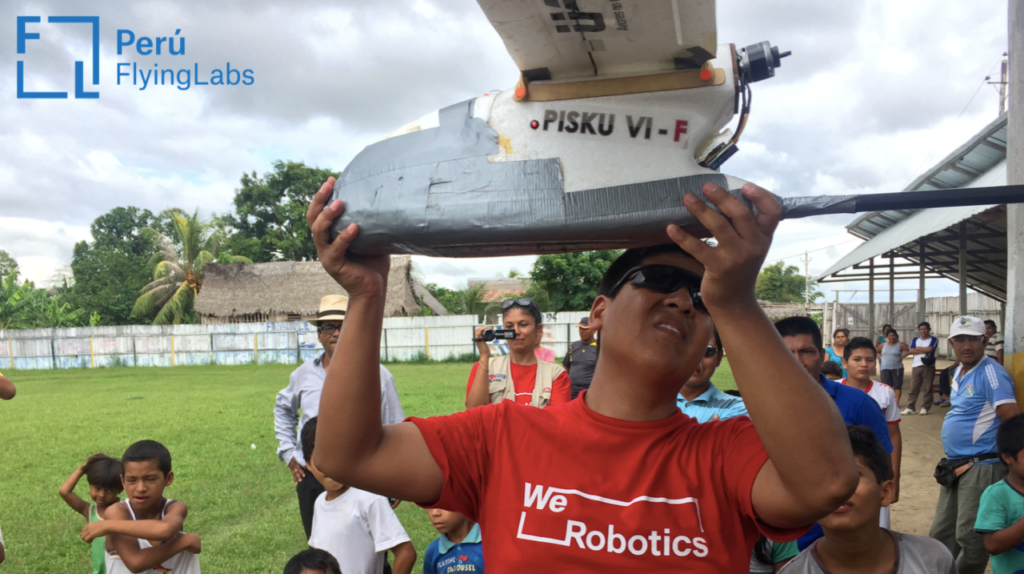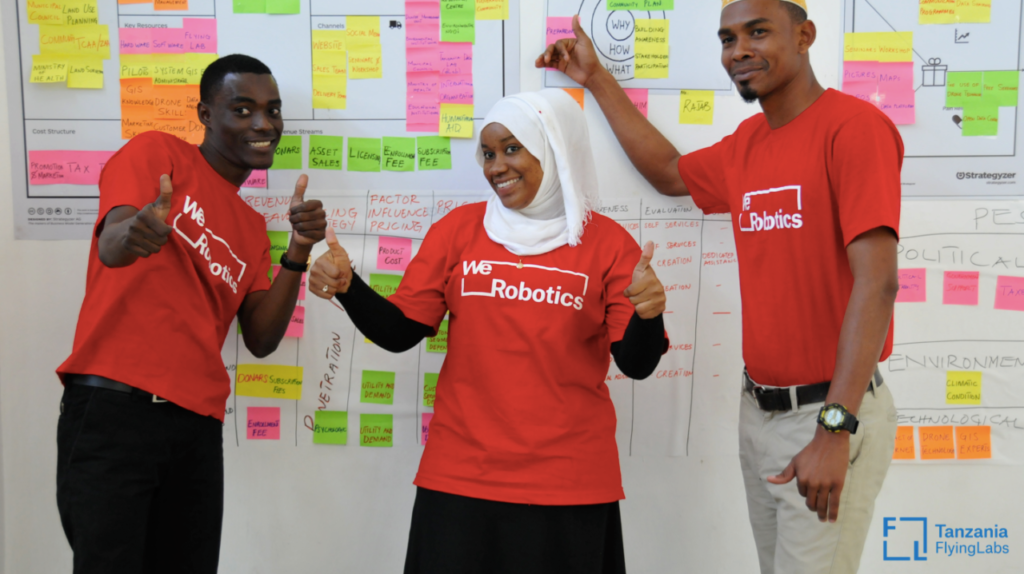
RFP: Seeking Cargo Drone Partner for Gates-funded Project in Cameroon
October 17th, 2019

We’re very pleased to announce that the Gates Foundation is partnering with WeRobotics to enable a more inclusive approach to cargo drone deliveries. The Gates Foundation joins our other donors—including The Rockefeller Foundation, Hewlett Foundation, Autodesk Foundation, Jansen Foundation, Omidyar Network, USAID, DFAT and IADB—in supporting inclusive, locally led applications of emerging technologies for social good. The Gates-funded project will focus on the transportation of patient samples in Cameroon using affordable, locally operable and locally repairable cargo drones. Cameroon Flying Labs will take the lead on the operations. We're also excited to share that the Center for Disease Control and Prevention (CDC) is once again partnering with us on a cargo drone project following our joint project in Papua New Guinea. In addition, we want to recognize and thank the World Health Organization (WHO) for their the participation and kind support.

Our grant agreement with the Gates Foundation requires that the cargo drone technology selected for this project be an affordable, locally operable, locally repairable solution that can be locally owned. In addition, our grant agreement makes it clear that local drone pilots, engineers and entrepreneurs are a key priority for this project. This is central to our mission at WeRobotics. As such, we will ensure that local experts take leadership roles. Together with Cameroon Flying Labs, we will also use this project to establish long term cargo drone expertise and capacity in country. In fact, Cameroon Flying Labs has already secured a number of local partnerships to ensure that these deliveries can continue after the end of the Gates funding. In sum, local sustainability is a top priority for us.
We are now launching this Request for Proposals (RFP) to select the ideal cargo drone partner for the project. The deadline is November 15, 2019. Cargo deliveries will begin early 2020. Please see the RFP for more details. For more on WeRobotics, Flying Labs and our collective approach to cargo drones, please see below.
WeRobotics supports a growing network of Flying Labs—local knowledge hubs run by local professionals in 25+ countries in Africa, Asia, Latin America and Oceania. These labs already have experience in operating drones for a range of projects across multiple sectors, including humanitarian aid, public health, sustainable development, and agriculture. They train local pilots and assist with acquiring, operating, and maintaining drones in each country. They run drone projects and trainings for local NGOs and governments. They are already connected to their own civil aviation authorities and the relevant ministries. And a growing number of these labs have direct operational experience in using cargo drones for public health, e.g., see these cargo drone projects in Peru , Dominican Republic, Papua New Guinea, Nepal and South Pacific. In addition, WeRobotics has also carried out cargo drone field tests in Brazil, and supported recent cargo drone demos in the Democratic Republic of the Congo, and we are teaming up with Nepal and Philippines Flying Labs on their own cargo drone projects. These public health projects are run through our HealthRobotics Program.

Cargo drone projects are ultimately less about the actual technology than many realize. Technology alone is never the solution. Based on our experience, technology represents at most ten percent of the solution. The other ninety percent includes working with public health professionals to identify compelling public health use-cases for the deliveries, establishing local partnerships, running dedicated community engagement and awareness raising programs, recruiting local talent and building local capacity for a range different stakeholders, selecting appropriate drone technologies and cargo boxes, creating a strong risk management plan, securing flight permissions and obtaining import permits, arranging shipment of batteries, sorting out local logistics, designing a sustainability strategy, implementing a communications policy, producing a preventive maintenance plan, and more. That other ninety percent is people-powered.
Flying Labs are essential because they typically have this ninety percent already covered, enabling them and their partners to implement local cargo drone projects (and data drone projects) more quickly, more cost-effectively and more sustainably in 25+ countries and regions around the world. In so doing, they create a different type of drone corridor. Traditional drone corridors are typically used by foreign organizations or companies for general testing purposes, like testing the range and reliability of new drones. In contrast, Flying Labs create dedicated, project-based corridors that are directly tied to operational projects where they are most needed—projects like this cargo drone project in the Dominican Republic and this one in Nepal, which are implemented by local experts for local stakeholders.

Local sustainability and ownership are central to the work of WeRobotics and Flying Labs. This explains why WeRobotics has a dedicated Business Incubation Program—to incubate and/or scale locally owned, locally managed businesses that offer drones as a service. This creates local jobs and helps support local industry over the long term. In the Nepal project referenced above, we worked with one of these incubated drone companies to enable them to take the lead in providing long term cargo drone services in Nepal. We plan to do the same for the Gates funded project in Cameroon. When the Gates project ends, we know that the local business in question will take over the operations from the Flying Labs to enable continuity in cargo drone deliveries.

We’re very grateful that the Gates Foundation values the Flying Labs model, and we very much look forward to working with them, local experts, Cameroon Flying Labs, the Center for Disease Control (CDC) and the World Health Organization (WHO).
Recent Articles

